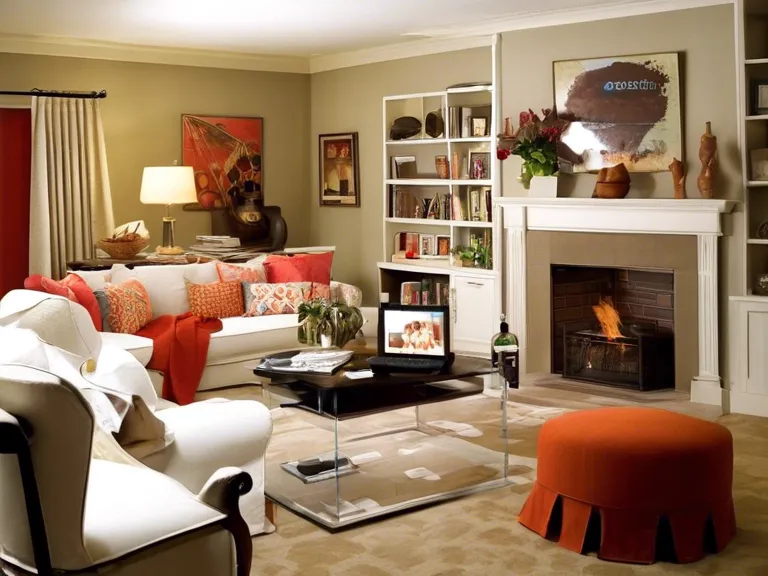
Introduction
In the field of counseling, incorporating engaging entertainment can be a powerful tool to connect with clients, facilitate discussions, and promote emotional healing. Whether you are a counselor working with individuals, families, or groups, integrating entertainment into your sessions can enhance the therapeutic process and make it more effective. This guide will explore various ways counselors can leverage entertainment to create a more engaging and impactful counseling experience.
Understanding the Power of Entertainment in Counseling
Entertainment, in the form of movies, TV shows, music, art, and literature, has the ability to evoke emotions, spark conversations, and provide a shared experience between the counselor and the client. When used thoughtfully, entertainment can serve as a bridge to difficult topics, help clients explore their feelings, and offer a different perspective on their challenges. By tapping into the emotional resonance of entertainment, counselors can create a safe and supportive environment for clients to delve deeper into their thoughts and emotions.
Incorporating Entertainment into Counseling Sessions
Movie and TV Show Therapy
Watching films or TV shows with clients can be a powerful therapeutic tool. Counselors can select content that resonates with the client's experiences or struggles, sparking meaningful discussions during or after the viewing. Movies and TV shows can provide narratives that mirror the client's journey, offer role models for coping strategies, and illustrate complex emotional dynamics in a relatable way.
Music Therapy
Music has the ability to evoke strong emotions and memories. Counselors can use music to help clients express their feelings, process trauma, or find comfort and solace. Encouraging clients to create playlists of songs that resonate with their experiences can be a valuable exercise in self-reflection and emotional exploration.
Art and Creative Expression
Engaging in art therapy activities, such as drawing, painting, or sculpting, can help clients externalize their internal struggles and emotions. Creative expression allows clients to communicate non-verbally, tap into their subconscious thoughts, and explore symbolic representations of their feelings. Counselors can incorporate art therapy techniques to enhance self-awareness, promote relaxation, and foster creativity in their clients.
Tips for Effective Implementation
- Know Your Client: Understand your client's preferences, interests, and comfort levels with different forms of entertainment.
- Create a Safe Space: Ensure that the environment is conducive to open discussions and emotional expression.
- Facilitate Discussions: Encourage clients to reflect on the entertainment content and share their thoughts and emotions.
- Respect Boundaries: Be mindful of triggering or sensitive content and provide appropriate support if needed.
- Evaluate Impact: Assess the efficacy of using entertainment in counseling sessions and adjust your approach based on client feedback.
Conclusion
By integrating engaging entertainment into counseling sessions, counselors can enhance the therapeutic experience, foster deeper connections with clients, and promote emotional healing and growth. Whether through movies, music, art, or other forms of entertainment, counselors have a wealth of tools at their disposal to create a supportive and enriching environment for their clients. Embracing the power of entertainment can transform counseling sessions into dynamic and impactful experiences that resonate long after the session ends.
alimentandolainocuidad.com
chrissyhelmer.com
dalamanisatiyorum.com
lacasadepedrolatincuisine.com
onechurchfilm.com
passionatecareinc.com
photojikan.com
pressnwear.com
steeplepointehomes.com
sustain-365.com
thegrapewineshop.com
throwdownthursdaypodcast.com
totalwheelworks.com
zelopro.com
aebill.com
aerialfitnessfactory.com
aikoubou-andon.com
armorarizona.com
atheeljewelry.com
bornwolfdesigns.com
boulevardbrasserie.com
colliermeyou.com
daanmogot-city.com
datasciencebeginners.com
dressingglobalbodies.com
estudiotraversaro.com
guraku.com
htdaviloz.com
idueforni.com
istanbulnakliyatsirketleri.com
janetsaw.com
kellyannsquilting.com
manicpaniccollection.com
minervarevista.com
nachwa.com
netokablog.com
onevirtualagency.com
pandaandpolarbear.com
qehtheatre.com
qlabdesign.com
re-mori.com
redenutri.com
shoestoshiraz.com
sienaleigh.com
sitstrongsystems.com
soldadonoelio.com
stacyboisvert.com
studiomanazza.com
thebattlelost.com
thefreemanview.com
thepresswire.com
thienduongtinhai.com
todorokigijyutu.com
yourwritinghelp.com
ad4gulf.com
airgatoradventures.com
allianceoffshoresupply.com
amygraycunningham.com
azaleayams.com
blipbg.com
blvproducts.com
cajuncoffeeshacktx.com
celalguntan.com
championcustomcarts.com
clothingbyandre.com
consolidate4free.com
cooperworkskilns.com
courtneysellfilms.com
daisychainproductions.com
dozensband.com
elevatebarbellclub.com
erumerch.com
eskisehirbmwservisi.com
eskisehirvolkswagenservisi.com
garnetsgold.com
gazzottivini.com
gggourmetgourmet.com
gitarkapok.com
gs-website.com
hottheaters.com
ichigashiraganka.com
immelresources.com
intotheoctahedron.com
iwantanap.com
janeoftarzana.com
japanesemonkeypants.com
kapsalonkarizma.com
kwikcarcredit.com
lewistutoring.com
lionslawyers.com
lydiafiges.com
midgefrazel.net
midtownfc.com
nyafoo.com
onelovethelabel.com
pandpheating.com
penggerakdaily.com
quailhollowkennel.com
quickstare.com
riverregionsoccerclub.com
scot-canoe.org
scottbrookshiredesign.com
sfr-kobe.com
smelettronica.com
sneakermestupid.com
starwishyou.com
stevesboatrentals.com
systemtrade-lab.com
theboomerrants.com
thedollshousesalon.com
therestsk.com
topdaddies.com
trinitychurchlighthousepoint.com
virtualescapeglobal.com
woodcarvingtron.com
202pages.com
5starelect.com
agenciagestiondigital.com
ashevillebit.com
automaticke-kavovary.com
balikrumah.com
belitha.com
bevonshire.com
centreofalignment.com
chadorsa.com
chuseto.com
cioe-online.com
creativehomehouseware.com
crescentchoirs.com
davidwebbarchitecturalmodels.com
derekjohnsonpage.com
faith-coffee.com
fehligbrotherslumber.com
fredguerin.com
gashiqoton.com
globaldescents.com
gonzalestree.com
healthkoop.com
ivanbrackenbury.com
janissmithlaw.com
jimmyselectricandac.com
jldgamingpc.com
joshkellymusic.com
jumarusa.com
justenjugheadallport.com
musicgoon.com
olivelimes.com
onlinekendo.com
paniolorealty.com
perzinacanada.com
reggieforohio.com
researchcmr.com
shamanshawn.com
taitai-taitai.com
theskygrill.com
thesteffesgroup.com
toothsomedocs.com
toriscustomart.com
toyotajogjacenter.com
travelensenada.com
agoraguajara.com
amidstbooks.com
amoremagicallife.com
appspcdb.com
belatone.com
bistrotletranger.com
blackmountainfirearms.com
casollo.com
castlewoodlion.com
centromeninos.com
cubedentertainment.com
freestone-media.com
gargleblastrecords.com
geesent.com
glimmernews.com
iifingersbar.com
jean-samuel.com
kamakura-qs.com
liminal-order.com
mdgolden.com
monkeychop69.com
telegraphik.com
thmaniah8.com
ulf-mask.com
ulfbiotech.com
best-shoopping.com
blutreestudios.com
chateaumaplewood.com
dulichnguyenhung.com
fordlawfirmpllc.com
gandtblog.com
iwishihadapenguinfriend.com
kbresre.com
kimihime.com
manggih.com
marcelogoes.com
mustlovedanesrescue.com
nangluong-mattroi.com
nicolemidwest.com
paulinevknguyen.com
seleneboutiquesorrento.com
shanghai-culture.com
singturmg.com
thefantasyguide.com
theholygeek.com
thepressshopnyc.com
transportreloaded.com
whereeverigo.com
askchrisknight.com
askchristopherknight.com
berkshirefoodjournal.com
cchirosw.com
coastalcottagesnl.com
destinationsite.com
finulldraft.com
gardenstatepaintingnj.com
impacthound.com
inneddi.com
itazurakoneko.com
judyforaz.com
localcarsnow.com
lovedayscinema.com
matiqistiqomahsambas.com
meetborofive.com
morskicovik.com
naturesrewardphotography.com
regenerativeresorts.com
restaurant-nashvilletn.com
scoopsicecreamtruck.com
simmonsmotorworks.com
trinityeco-tours.com
uncoverstudios.com
wong-multimedia.com
123exp-government.com
abozymes.com
atsheatingandair.com
bemjavim.com
caseintrend.com
cdnxbvn.com
charangolibre.com
denis-latin.com
frugal-science.com
fukuoka-kouyaren.com
hanabisou.com
herculessportcenter.com
highvoltageloja.com
hlwstoryboard.com
juderabig.com
leauxandbehold.com
melurix-next.com
moggiechicken.com
mytrendysins.com
nativeskinonline.com
ninethreestudio.com
pcmwereld.com
pichinkufibers.com
primerautobody.com
salmanhatta.com
shalevbrosh.com
sosorryrecords.com
sportsone-egy.com
wofome.com
ycadeau.com
abalawpc.com
airportpawnmiami.com
alchemycollaborative.com
blackfigdesigns.com
cubemedica.com
deliciousyarns.com
denledamtrancaocap.com
denledpanelcaocap.com
futebolrico.com
honsyuji.com
jayasupranaschool.com
jstact.com
kikichaos.com
knuckleupmartialarts.com
lavi-furniture.com
maisonsecomatiq.com
neighbors-construction.com
nspointers.com
opticiwear.com
richouli.com
soddydaisyhealthcare.com
soultalkmagazine.com
studywithpmouy.com
swordfightsandstarrynights.com
tamatur-bali.com
thepainreliefsecret.com
townhouselinens.com
vchainstore.com
vormaro.com
yukonlodgeforsale.com
airkoolny.com
an-geeke.com
bajka3.com
bertinoargenti.com
birolkitabevi.com
burikoland.com
emeraldseamless.com
floridanativecharters.com
iptvsportt.com
jupiterboutique.com
kateronline.com
kustomkoachrv.com
lademeuredufondateur.com
lucianamurta.com
luckydelaware.com
luckyindiana.com
lujannavas.com
mike4rep.com
milioshairsalon.com
movingrestaurantequipment.com
openseedvault.com
retrogradetours.com
revistaresiduos.com
roughandreadygrange.com
therusalka.com
toxnfill3.com
valleymaintenancelandscape.com
violetorlandi.com
wanpaku-golf.com
zinkdental.com
suryacctv.com
tuvannugioi.com
mandalynmusic.com
wireless-reviews.com
tussingblockwatch.com
greenteaphotography.com
jennierooney.com
vietamreview.net
kyavar.com
market-truth.com
alexandregaurier.com
omegagadget.com
banditosla.com
nursememama.com
oyunbilim.com
acme-nuclear.com
agilityimap.com
akikcombong.com
anniesmysteries.com
bflofoodie.com
brandzonestudios.com
cacemar.com
daperezlaw.com
denvyautomation.com
eugeneband.com
factory-eshop.com
florentdumas.com
hishaywireless.com
in2-signs.com
kuwekeza-holdings.com
mitaniya-ltd.com
mixfoure.com
mobilitypluspro2.com
moipravila.com
montreal-business-kit.com
mortiseandmiter.com
nextdigitaldental.com
nurdalilahputri.com
oem-phoneaccessories.com
palmbeachestepona.com
precavida.com
roscoeandetta.com
scriptsnmacros.com
sringserver.com
thecustomfairy.com
withlovefromangela.com
applebyandwood.com
auzigog.com
eac-w.com
homesbyelevation.com
nihilismforoptimists.com
slavonkandhortus.com
thekoreanpolitics.com
turningpointpt.com
val-up.com
wakansen.com
3dideation.com
achilles-fire.com
banatelhalal.com
biyografirehberi.com
bohams.com
comisiondeestudios.com
cooride-net.com
danayumul.com
ecadecom.com
edwardscornerfarmersmarket.com
ekspresif.com
ellajmae.com
ginroecooks.com
gracefueled.com
hightidekitchen.com
jeroenswolfs.com
marthalott.com
mollybroekman.com
mpthoidai.com
plumfashionpr.com
racktents.com
solzapower.com
southcoastbehavioralhealth.com
the101bali.com
thearguide.com
theartistfia.com
thefitnesswire.com
thelivelihoodproject.com
thelynndentonagency.com
wilkespoolsnspas.com
wjwatson.com
drinkganbei.com
mendenhallnews.com
nathaliemoliavko-visotzky.com
nationalinfertilityday.com
wide-aware.com
ashleymodernfurniture.com
babylonbusinessfinance.com
charliedewhirst.com
christianandmilitaryhats.com
hypnosisoneonone.com
icelandcomedyfilmfestival.com
kayelam.com
mlroadhouse.com
mumpreneursonline.com
posciesa.com
pursweets-and.com
rgparchive.com
therenegadehealthshow.com
travelingbitz.com
yutakaokada.com
22fps.com
aarondgraham.com
essentialaustin.com
femdotdot.com
harborcheese.com
innovar-env.com
mercicongo.com
oabphoto.com
pmptestprep.com
rmreflectivevest-jp.com
tempistico.com
filmintelligence.org
artisticbrit.com
avataracademyagency.com
blackteaworld.com
healthprosinrecovery.com
iancswanson.com
multiversecorpscomics.com
warrenindiana.com
growthremote.com
horizonbarcelona.com
iosdevcampcolorado.com
knoticalpr.com
kotaden.com
la-scuderia.com
nidoderatones.com
noexcuses5k.com
nolongerhome.com
oxfordcounselingcenter.com
phytacol.com
pizzaropizza.com
spotlightbd.com
tenbags.com
thetravellingwilbennetts.com
archwayintl.com
jyorganictea.com
newdadsplaybook.com
noahlemas.com
qatohost.com
redredphoto.com
rooms4nhs.com
seadragonenergy.com
spagzblox.com
toboer.com
aumantvmuseum.com
beyondausten.com
citylabstudio.com
diskonio.com
drinkcf.com
eft-dongle.com
emilymeganphotography.com
evolveathleticclub.com
godleystationvet.com
hirochanweb.com
homeonefurniture.com
ifiwasastylist.com
lacantinepopup.com
liriklagubatak.com
lo-ko.com
mensagenseatividades.com
myway-zeus.com
nevadadec.com
nokarikhabar.com
nuuuki.com
quenchpad.com
sckyrock.com
tindunghanoi.com
tradeshows-biz.com
wikimuzik.com



